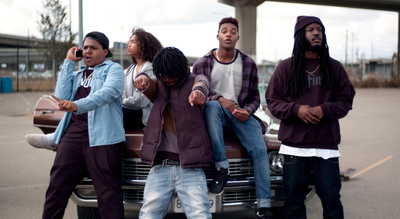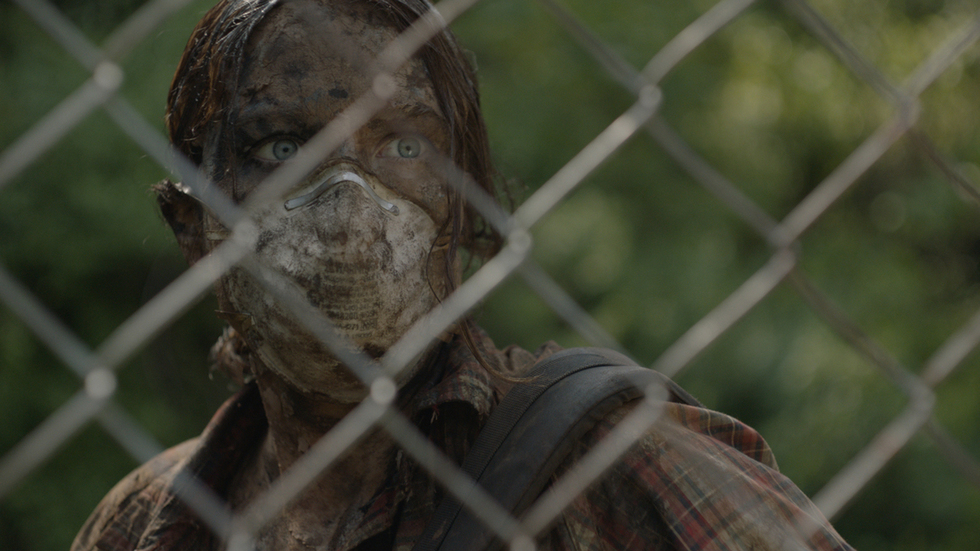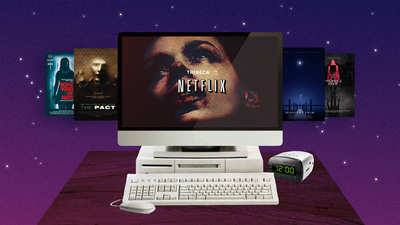
BY CAMILA RODRIGUEZ |
5 Tribeca Directors Give Advice to Aspiring Filmmakers
Do you hope to someday premiere a film at Tribeca? Step one: Follow the tips given by these filmmakers.

What does it take to become a successful independent filmmaker? Five Tribeca directors tell us about the most important quality any filmmaker must possess in order to make it. The common thread: Know your craft and expect to be surprised!

Thierry Demaizière, Alban Teurlai, Reset: The essential quality is to be infinitely adaptable. Filming a documentary like Reset is light years away from shooting a production where everything is scheduled planned, framed, written, and where nothing is left to luck. We stayed inside the Paris National Opera for three months. Every morning, we had to adapt our work to rehearsals, break times, meetings we were not allowed to attend, lessons we couldn't film, and Benjamin Millepied's busy schedule that always caused him to be where we weren't waiting for him.
The Palais Garnier is an enormous maze with which we had to become familiar. We had to find our place and gain a foothold with one goal in mind: having the film ready for the premiere, because we wouldn't have a chance to shoot anything afterwards. Filming in these conditions is no easy work. It's tiresome and sometimes uncomfortable. But if we had to do it again, we wouldn’t change a thing. This urgency is what gives the film its vitality, and we believe it shows on the screen.
Buy tickets for Reset here.

Rod Blackhurst, Here Alone: Make your own rules, because there are no "rules" to making a film (even though industry insiders would like you to believe differently). Produce your own film. Learn how to paper your own film and do it. Learn how to budget and line produce your own film. Cast your own film. Crew your own film. Seek out mentors to advise you on these processes, being up front and honest with what you're asking of those that have gone before you. Remember who called you back and who took the time to engage with you. Remember who ignored you and never returned your calls. Don't take no for an answer. Believe in yourself. Set your ego aside and collaborate. And most of all, send the elevator back down when you get there because there's someone else like yourself who needs a lift up.
Buy tickets for Here Alone here.

Jenny Gage, All this Panic: Any one word is naturally an oversimplification, but my gut reaction is curiosity. Any filmmaker is going to have a passion for their subject, but to ignore the curiosity to follow all the threads, both planned and unexpected, because you're so focused on the goal, would be a disservice to the creative potential. It's curiosity that leads to the stories with telling.
Buy tickets for All This Panic here.

Simon Dixon, Tiger Raid: I don't think it's any one thing. People and filmmaking are complex and many layered. A single-minded desire to achieve your goal helps. You have to have drive. I think it's important to make things that are original and forge into spaces that you know are truthful to you. Of course it is entirely personal and finding what makes your own heart beat faster is a good marker for deciding if it's the right thing to do. I think being open and collaborative helps. Film is inherently a team game but you have veto sniff out the good ideas, the ones that will gel with the film's vision and elevate it. The reverse applies sometimes where you have to believe in yourself and not waver when challenged. A lot of people can detract you from your vision. So the confidence to avoid the bullshit helps.
Understanding how things are made and the technologies that achieve this is extremely useful. And the details. The little things and the subtleties that others might miss. You have to have the wider vision but it is delivered by millions of little details. Loving them is well worthwhile.
Buy tickets for Tiger Raid here.

Justin Tipping, Kicks: I would say learning how to sleep during production, but I haven't figured that out yet. So, I'd go with the ability to compromise. No matter what you envision in your head, everything can change when you get to set. You need to be self aware of the positive and negative effects of every choice you make.
If you're chasing a certain shot you always wanted but it's going to take up half the day and therefore jeopardize other scenes with vital story points, you have to learn to let that idea go or adjust your original vision for the greater good of the film as a whole. You should always have a plan and be ambitious; however, accepting ahead of time that some things are going to happen that are out of your control is crucial. Knowing this, you'll be able to concentrate on the filmmaking and make the best of any situation without sacrificing story for style.
Buy tickets for Kicks here.


